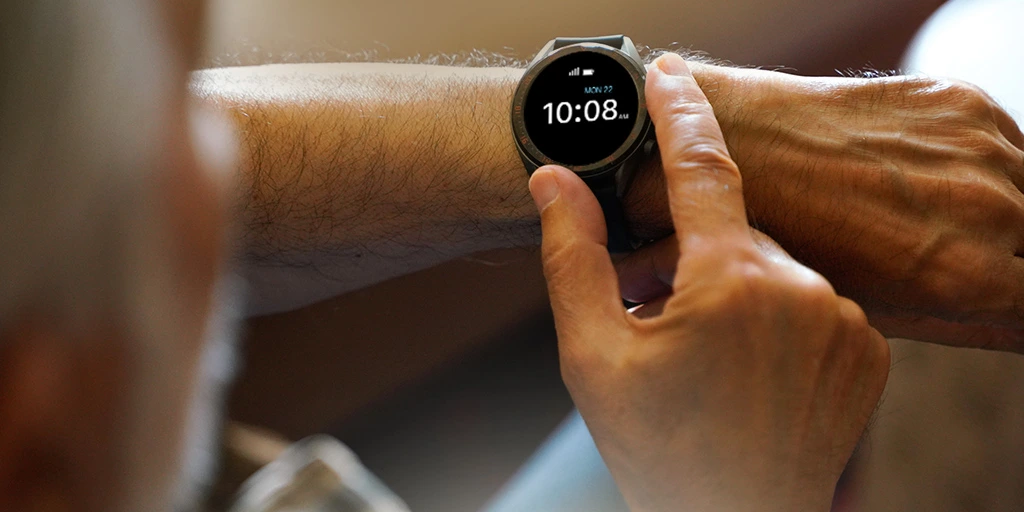Dementia vs Alzheimer’s: Definitions, Stages, and Treatment
Updated on January 22, 2024
Pinpointing the onset of dementia in our loved ones can be challenging. The initial symptoms are typically gradual, so they’re often easy to miss. And they frequently include subtle fluctuations in focus and alertness—something we can all relate to in the attention-deficit era. When we get the diagnosis, many of us ask ourselves why we didn’t realize it sooner.
Imagine your 75-year-old mother has become progressively irritable and confused. She snaps in situations that never upset her before and has started forgetting the details of recent conversations. Yesterday, she spent an hour looking for the car keys only to find them this morning in the refrigerator. Is she experiencing a mild stage of Alzheimer’s or dementia of another type? And what is the difference between dementia and Alzeimer’s?
Even doctors don’t easily distinguish between the various dementia syndromes, which typically share common clinical features. Yet understanding the broad categories of dementia’s symptoms and stages is important to help us recognize them earlier. While not a cure, early intervention can help delay progression, improve treatment outcomes, and positively influence the well-being of patients and their closest caretakers by prolonging independence.
While not a cure, early intervention can help delay progression, improve treatment outcomes, and positively influence the wellbeing of patients and their closest caretakers by prolonging independence.
What is dementia?
Many people with new diagnoses are curious to know: are dementia and Alzheimer’s the same thing? Perhaps what they’re really asking is which is worse, dementia or Alzheimer’s? Dementia is simply an umbrella term that describes a group of symptoms affecting cognitive abilities, such as memory, thinking, and reasoning. It is not a specific disease but a syndrome caused by various underlying conditions. Dementia is characterized by a decline in cognitive function that is severe enough to interfere with a person’s daily life and activities.
Alzheimer’s disease is the most common cause of dementia, accounting for about 60-70% of cases—mostly after the age of 65. Its hallmark feature is a progressive loss of memory. Alzheimer’s affects people of all racial, ethnic, and socioeconomic backgrounds. However, studies have shown that certain populations may be more susceptible or at higher risk. For example, older adults of African, Hispanic, or Native American descent may have a higher prevalence compared to Caucasians. Additionally, women tend to be diagnosed with Alzheimer’s more often than men, although this may be partly due to women’s longer average lifespan. Risk factors associated with an increased likelihood of developing Alzheimer’s include poor cardiovascular health, diabetes, and repeated head trauma. Although most Alzheimer’s cases do not have a clear genetic cause, there are certain genetic mutations and variations that can increase the risk of developing the disease.
Other forms of dementia, such as vascular dementia or Lewy body dementia, may present with different patterns of symptoms. For example, vascular dementia may exhibit more prominent signs of stroke-related symptoms, such as difficulty with walking, balance, and coordination. Lewy body dementia may involve hallucinations, shortness of attention, and movement difficulties similar to Parkinson’s disease.

What are the stages of dementia?
While there are different models and classifications for the stages of dementia, one commonly referenced framework is the Seven Stages of Dementia, developed by Barry Reisberg, a researcher in the field. These stages are often associated with Alzheimer’s disease, but not everyone with dementia has Alzheimer’s, nor will they experience each stage in the exact same way.
In stage 1 there is no cognitive decline. The individual does not exhibit any significant memory or cognitive problems and they function normally. This stage can span several years and even decades.
Stage 2 is characterized by very mild cognitive decline. At this stage, individuals may start experiencing slight lapses in memory, often mistaken for normal age-related forgetfulness. They may have difficulty remembering names or finding the right words in conversations. However, these symptoms are often subtle and not easily noticeable.
During stage 3, or the early stages of mild cognitive decline, friends and family members may begin to notice changes in the individual’s cognitive abilities. Memory lapses become more noticeable and may impact daily life activities. Common signs include difficulty finding the right words, forgetting names or recent events, and misplacing belongings. However, individuals at this stage can still function independently and may compensate for their cognitive decline.
Once moderate cognitive decline begins, stage 4, clear and significant cognitive impairments become apparent. Memory deficits worsen, and individuals may struggle with managing finances, organizing their schedules, and remembering recent events or personal history. They may also experience mood swings, become withdrawn, and struggle with problem-solving.
By stage 5, individuals require more assistance with daily activities and self-care as they experience moderately severe cognitive decline. Memory deficits continue to worsen, and they may struggle with recognizing close family members or remembering personal details. They also experience confusion about time, place, and their surroundings. Assistance with tasks such as dressing, bathing, and meal preparation becomes necessary.
At stage 6, severe cognitive decline, individuals with dementia require constant supervision and assistance. They may have little or no memory of recent events or even their own personal history. They also have difficulty speaking coherently and require help with basic tasks such as eating and using the bathroom. Behavioral changes such as agitation, delusions, or hallucinations can occur.
A severe loss of cognitive function characterizes the final stage of dementia. Individuals at this stage are typically bedridden and may lose the ability to communicate verbally. They require round-the-clock care and assistance with all activities of daily living. Physical functions, such as swallowing and mobility, become severely impaired.
Improving quality of life for people with all forms and stages of dementia, including Alzheimer’s

While there is currently no cure for most types of dementia, there are several approaches and tools for managing symptoms and improving quality of life by mitigating its intensity and rate of progression.
Common medications for dementia include cholinesterase inhibitors (e.g., donepezil, rivastigmine, galantamine) and memantine. These medications can help improve memory, thinking, and behavior in some individuals. Aduhelm, the first drug in decades to be approved by the FDA for the treatment of Alzheimer’s, is also gaining popularity for those with mild cognitive impairment.
Beyond medication, regular cognitive stimulation in the form of memory games, reading, and socializing can help slow down the decline. Especially in the early stages. It is absolutely crucial to provide emotional support and education to both individuals with dementia and their caregivers. Support groups, behavioral and psychological interventions, and educational programs offer valuable information, coping strategies, and a network of individuals facing similar challenges.
Occupational therapists can also help individuals with dementia by identifying strategies to manage daily activities and maintain independence for as long as possible. They may suggest adaptations to the living environment, assistive devices, and routines that promote function and safety.

Assistive technology supports wellbeing and independence for patients and caregivers
AngelSense is an innovative solution that promotes the safety and wellbeing of seniors with dementia. Originally created for kids and teens with special needs and autism, our patented Assistive technology for autism provides effective remote support and enables greater independence, confidence, and self-reliance. Caregivers get peace of mind, too, releasing the stress that goes with the need for constant supervision.
Unlike ordinary smartphones and GPS trackers, which are not designed for the needs of those with dementia, AngelSense combines GPS, cellular connectivity, and WiFi, enriched with AI, to deliver targeted alerts and reliable tracking information. For example, continuous all-day monitoring means AngelSense always knows where your loved one is, whether the app is open or not. Caregivers get location change notifications and proactive alerts to potential emergencies, such as falling or wandering. And an auto-pickup speakerphone lets you be there for your loved one whenever needed throughout the day.
For more information about using AngelSense Assistive Technology to support a loved one with dementia or Alzheimer’s, click here.
See how Torin is using AngelSense to help care for her mother living with Alzheimer’s.

